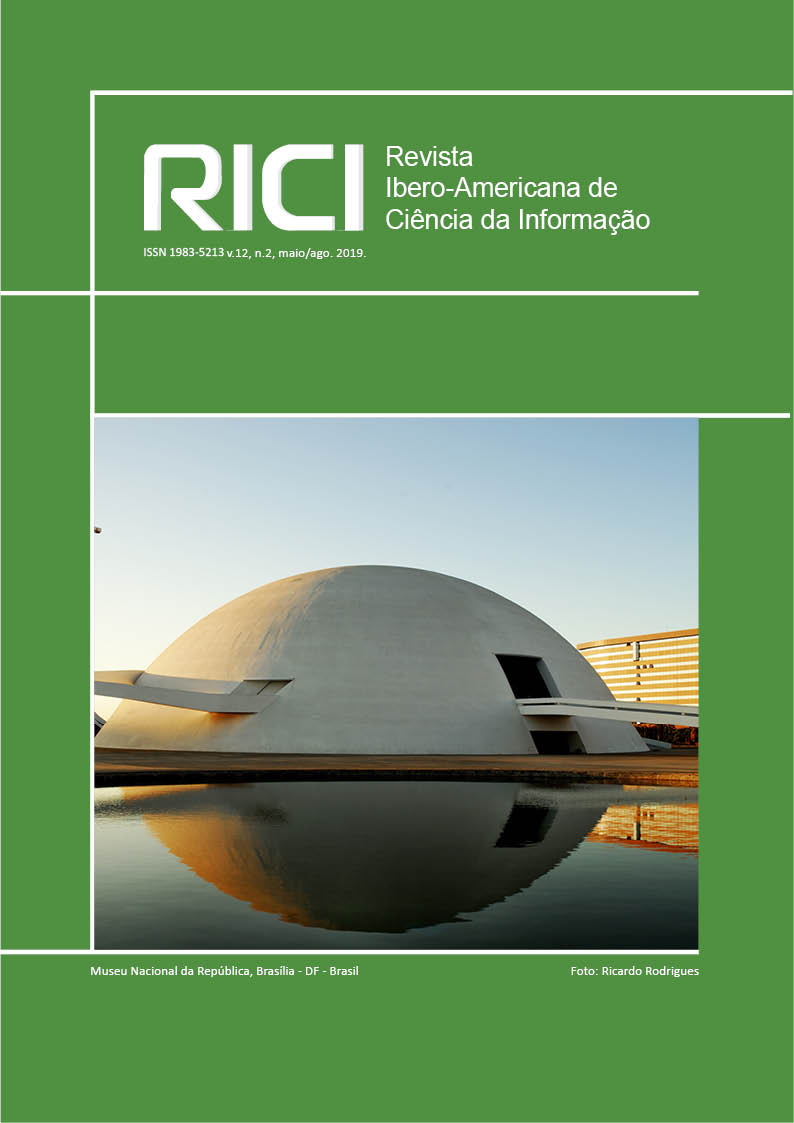Aprendendo e ensinando habilidades digitais em um ambiente móvel: Avanços em pesquisa aplicada professores universitários e estudantes de Ciências Sociais
DOI:
https://doi.org/10.26512/rici.v12.n2.2019.23590Palavras-chave:
aprendizagem móvel. Ciências Sociais. competência digital. Competências em informação. educação superior. Smartphones.Resumo
É apresentado um projeto interdisciplinar sobre competências informacionais de estudantes e docentes universitários de Ciências Sociais. O projeto visa criar programas disciplinares para aprendizagem em um ambiente misto que enfatize as tecnologias móveis. O projeto foi Aprovado no “Plan estatal de investigación, desarrollo e innovación orientada a los retos de la sociedad” (2017-2019) e continua o projeto de pesquisa anterior sobre “Evaluación de las competencias informacionales del estudiantado universitario de ciencias sociales” (2011-16), que produziu os questionários IL-HUMASS e EVALCI. Esta nova pesquisa aborda três linhas de ação: 1) Diagnóstico das percepções dos professores sobre os níveis de competência em informação (doravante ALFIN), seus próprios e de seus alunos. 2) Desenho e desenvolvimento de um modelo integrador para a aquisição e avaliação do IC de alunos e professores universitários; e 3) Desenvolvimento de programas disciplinares, como ferramentas de apoio e integradores de todo o projeto. A metodologia da pesquisa aplicada é qualitativa e quantitativa, adaptando a cada um dos objetivos do projeto e, portanto, é usado tanto autopercepção como a técnica de entrevistas individuais e em grupo com alunos e professores para atender os hábitos de aprendizagem, quanto metodologias, estratégias, iniciativas e melhores práticas. A partir da síntese da visão de professores e alunos serão desenvolvidas ferramentas de aprendizagem que podem ser personalizadas através de um modelo integrador, estrutural e flexível de competências informacionais, incluindo tutoriais para cada disciplina pesquisada, e os aplicativos correspondentes para telefones inteligentes , baseados em conteúdo digital e multimídia
Downloads
Downloads
Publicado
Como Citar
Edição
Seção
Licença
Notas de direitos autorais
Autores que publicam nesta revista concordam com os seguintes termos: Autores mantém os direitos autorais e concedem à revista o direito de primeira publicação, com o trabalho simultaneamente licenciado sob a Creative Commons Attribution License 4.0, permitindo o compartilhamento do trabalho com reconhecimento da autoria do trabalho e publicação inicial nesta revista. Autores têm autorização para assumir contratos adicionais separadamente, para distribuição não-exclusiva da versão do trabalho publicada nesta revista (ex.: distribuir em repositório institucional ou publicar como capítulo de livro), com reconhecimento de autoria e publicação inicial nesta revista. Autores têm permissão e são estimulados a distribuir seu trabalho online (ex.: em repositórios institucionais ou na sua página pessoal) a qualquer ponto antes ou durante o processo editorial, já que isso pode gerar alterações produtivas, bem como aumentar o impacto e a citação do trabalho publicado.
















